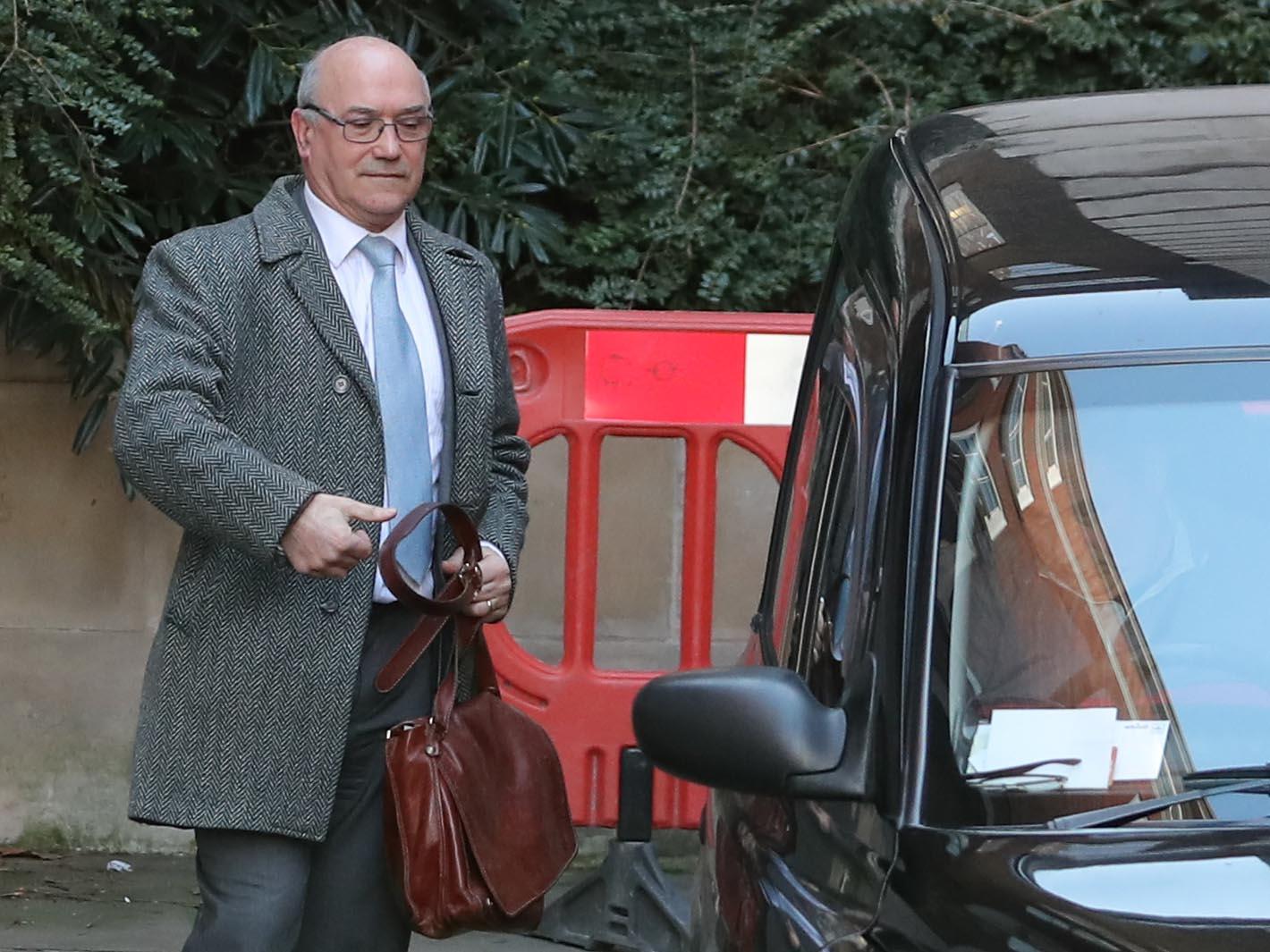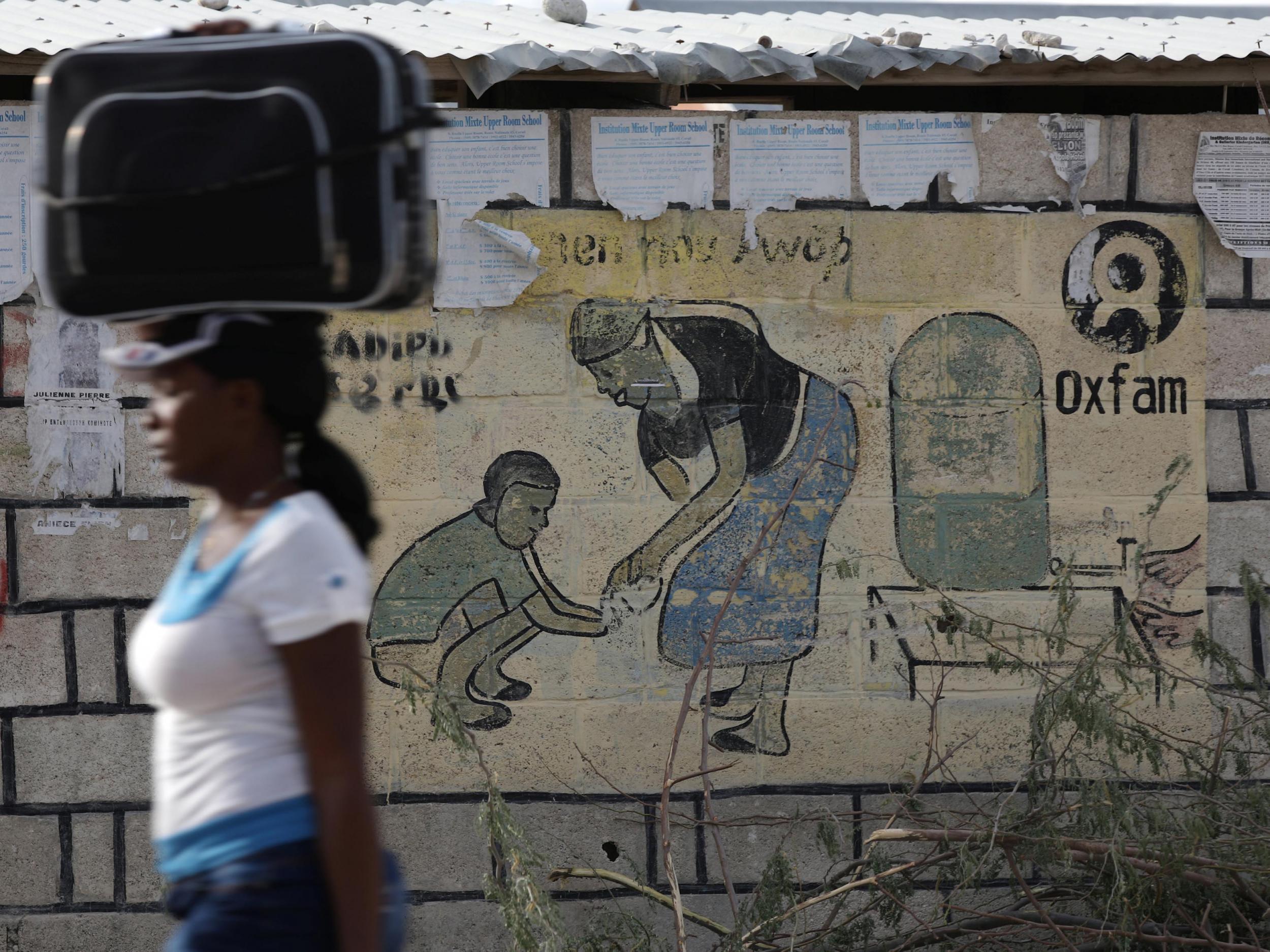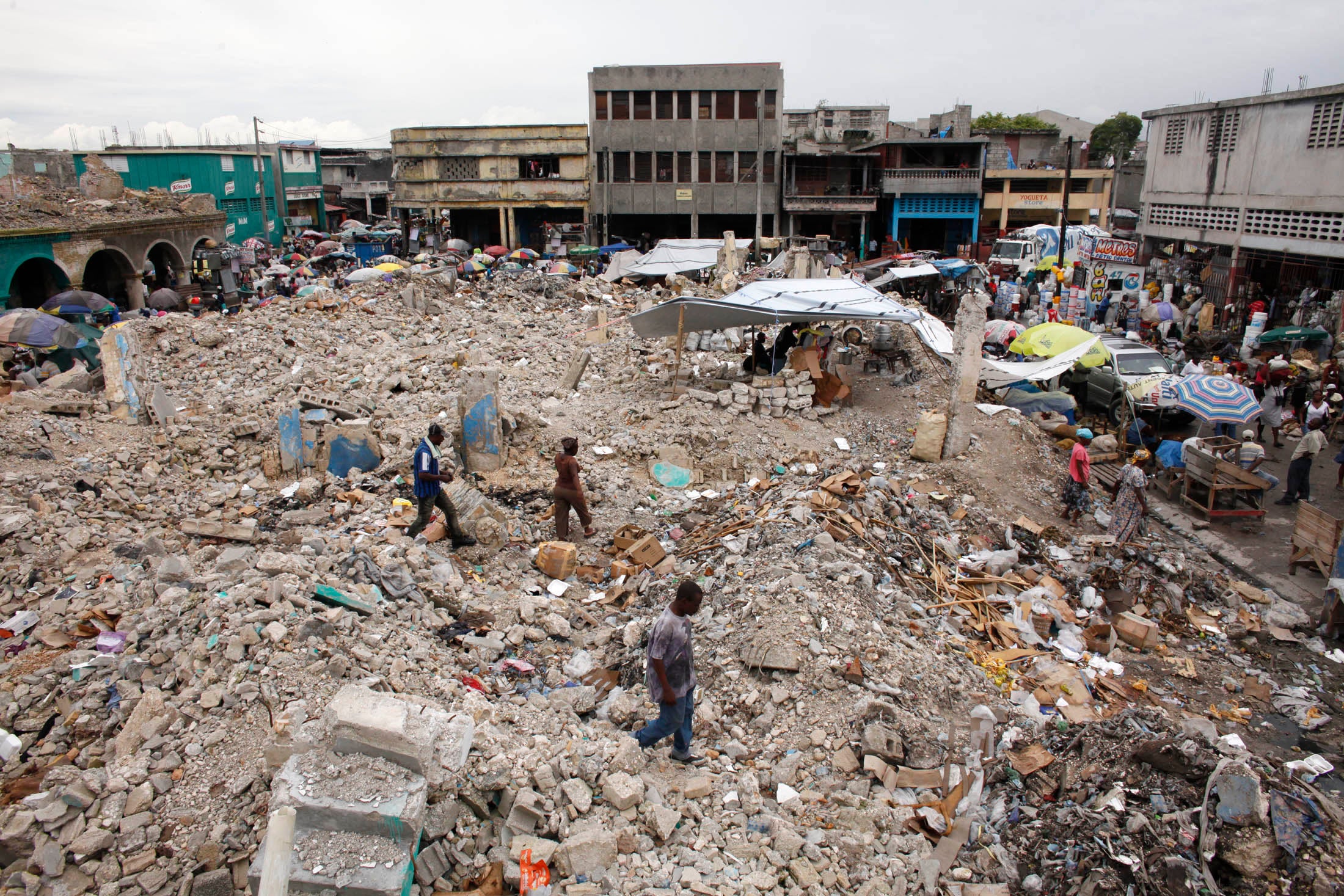Oxfam received 26 new reports of alleged sexual misconduct after Haiti scandal emerged, MPs told
Mark Goldring apologises for comparing scandal to 'murdering babies in their cots'
Your support helps us to tell the story
From reproductive rights to climate change to Big Tech, The Independent is on the ground when the story is developing. Whether it's investigating the financials of Elon Musk's pro-Trump PAC or producing our latest documentary, 'The A Word', which shines a light on the American women fighting for reproductive rights, we know how important it is to parse out the facts from the messaging.
At such a critical moment in US history, we need reporters on the ground. Your donation allows us to keep sending journalists to speak to both sides of the story.
The Independent is trusted by Americans across the entire political spectrum. And unlike many other quality news outlets, we choose not to lock Americans out of our reporting and analysis with paywalls. We believe quality journalism should be available to everyone, paid for by those who can afford it.
Your support makes all the difference.Oxfam has received 26 new allegations of sexual misconduct since the revelations over a 2011 scandal in Haiti, embattled leaders have told MPs.
Mark Goldring, the chief executive of Oxfam GB, said the charity had put out a call for people to come forward with reports.
“Across Oxfam Great Britain we have had about 26 stories, reports come to us which were either new reports come out as a result of the stories, or earlier stories where people said, ‘I didn’t necessarily report this at the time’,” he said.
“Some of those cases relate to the UK, some of them relate to our international programme.”
He was appearing before the International Development Committee, which announced a full inquiry on sexual exploitation in the wider aid sector.
Chair Stephen Twigg accused Oxfam of “putting their reputation ahead of their beneficiaries”.
“It is very clear that there is a much wider issue across the sector and that these are not new issues – the world has known about this for a very long time,” he added.
“You have got to get your house in order and demonstrate to the British people that you are getting your house in order.”

Mr Goldring was asked to apologise for his previous comments claiming the response to sexual misconduct by aid workers in Haiti was “out of proportion”.
“The intensity and the ferocity of the attack makes you wonder, what did we do? We murdered babies in their cots?” he told The Guardian. ”Certainly, the scale and the intensity of the attacks feels out of proportion to the level of culpability.”
Asked whether he wanted to apologise for the “grossly inappropriate” remarks, he said: “I do apologise, I was thinking under stress, I had given many interviews ... I was thinking about the amazing work I’d seen Oxfam do across the world.
“I should not have said those things, it is not for Oxfam to judge issues of proportionality or motivation.”
Mr Goldring said 7,000 direct debits have been cancelled since the scandal broke 10 days ago, while Oxfam has been temporarily barred from requesting any new funding from the Government.
Oxfam has released the results of an internal inquiry into sexual misconduct by staff in Haiti, which resulted in four employees being sacked and three others including the country director resigning.
Its own 2011 investigation called for other charities to be warned of “problem staff”, but Oxfam rehired one of the men involved and it was possible for others to gain work at charities including Action Against Hunger.
Mr Goldring, who took up his post two years after the investigation, said he was given “clear assurances that the Haiti case had been well-handled” and had no reason to believe it should be reopened.
After the original investigation, Oxfam issued a press release revealing its findings of “serious misconduct’’ involving bullying, intimidation and breaches of the charity’s code of conduct but made no mention of sexual exploitation or prostitution.

“At the time, people thought that was being transparent,” he said. “We know now that that was not enough.
“My colleagues at the time made a set of decisions about how public to go. With hindsight they made the wrong call.”
He said Oxfam had received no warnings over disgraced country director Roland van Hauwermeiren from a charity where he previously worked, but admitted “failings” after his departure.
“If any good can come out of the horror of Haiti and the past couple of weeks, it’s a more intensive commitment across the whole sector that we root this out both in a practical way and by getting to grips with culture, power relations, responsibility and values,” Mr Goldring said.
Pauline Latham, a Conservative member of the committee, criticised Oxfam for not reporting the use of prostitutes to police and reforming too slowly.
She accused the charity of starting a new database of accredited referees “only because you were found out”, despite sexual abuse being “common knowledge” in the aid sector.
“Your organisations are not victims in this, it’s the women and girls being abused by men that you employ and other aid agencies,” Ms Latham said.
“This is so shocking – no wonder the world’s angry, and no wonder people are questioning whether any money should be given to charities.
“Sadly, the people who should benefit from this are the poor people in different countries and they’re going to lose out because of all your behaviours in the aid sector.”
Winnie Byanyima, the executive director of Oxfam International, said it had been working with other charities on a database of workers but decided to launch its own last week because of slow progress.
“We were not doing nothing, we were working on it but we have reached the point where the world has woken up,” she added.
“We have been improving every year but we are not where we want to be and we admit that.”
Oxfam’s chair of trustees, Caroline Thomson, said the scandal had been “a real wake-up call not just for Oxfam but for the whole sector”.
“We are ashamed of what happened in Haiti,” she told the committee. “We don’t think it was well handled and our task now is to make sure we report always with transparency and accountability.
“My task is to make sure we never again can be at risk of being perceived to have put reputation over accountability.”
Representatives of Save the Children, which published a report documenting aid workers’ abuse of children as young as six in Haiti in 2008, proposed a “humanitarian passport scheme”.
Steve Reeves, the charity’s director of safeguarding, said both girls and boys were being abused by aid workers and UN peacekeepers globally in a pattern of behaviour “largely manifested by men”.
“There is no doubt that there are people with a sexual interest in children who actively seek out the opportunity to work with children,” he added. “It’s a very considerable problem.”

Save the Children spent more than £100,000 on criminal records checks for staff last year and investigated 193 allegations in 2016.
“Difficult to know if you’re catching the tip of the iceberg or if you’re catching the iceberg itself ... it’s a systemic problem,” CEO Kevin Watkins told the committee.
“We [in the aid sector] can’t sit around and wait for somebody else to solve this problem ... the challenge is to move very quickly and build the coalitions we need to drive it forward.”
The Department for International Development (Dfid) admitted it was told of Oxfam’s investigation in 2011 but said “no point was either the scale of the severity of the allegations made clear”.
Gerard Howe, head of its new safeguarding unit, said the Government was told that breaches of the charity’s code of conduct did not involve beneficiaries or the abuse of funds.
He told MPs civil servants had “found no record of contact” from Oxfam’s former head of safeguarding in 2015, when she claims to have raised the alarm over failings.
When asked how Dfid reacted to Save the Children’s damning 2008 report, Mr Howe acknowledged that “system-wide there was a failure to respond at scale to those messages”.
Permanent Secretary Matthew Rycroft said the department was properly considering long-standing calls for a register of British aid workers and fuller international cooperation.
“Nothing is any longer in the ‘too difficult’ box,” he added. “We are determined to use this crisis to get the whole of the sector into a better shape, to root out this evil wherever it occurs and to draw on the sector, and beyond, to get ideas on how best to do that.”
Penny Mordaunt, the International Development Secretary, said the next steps would be decided at a safeguarding summit to be attended by British charities on 5 March.
All 192 UK-based charities currently working overseas with British aid funding have been given until Monday to provide assurances on their safeguarding practices and hundreds of foreign NGOs and private organisations have been contacted.
“The US, Canada, the Netherlands and others have already agreed to support our goal of improved safeguarding standards across the sector,” Ms Mordaunt told the House of Commons.
“The UK is not waiting for others to act. We are taking a lead on this.”

Join our commenting forum
Join thought-provoking conversations, follow other Independent readers and see their replies
Comments